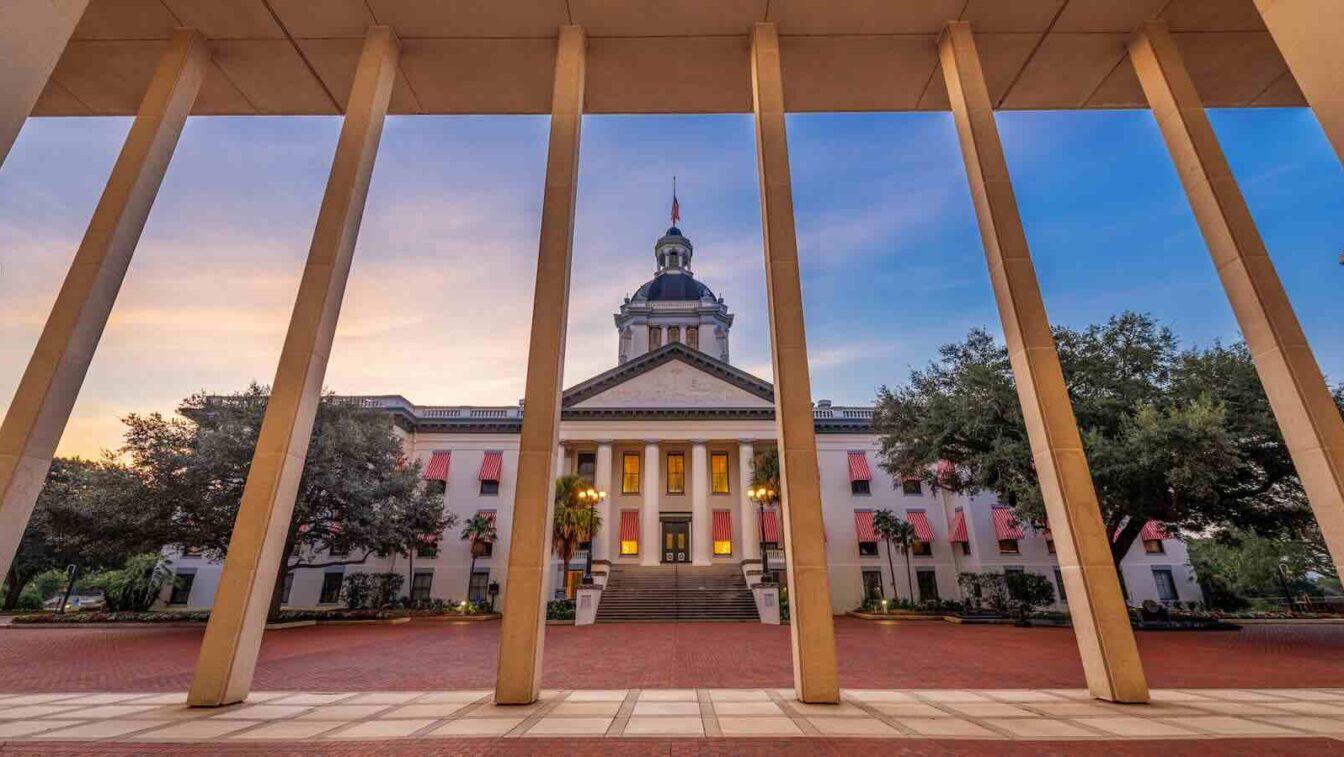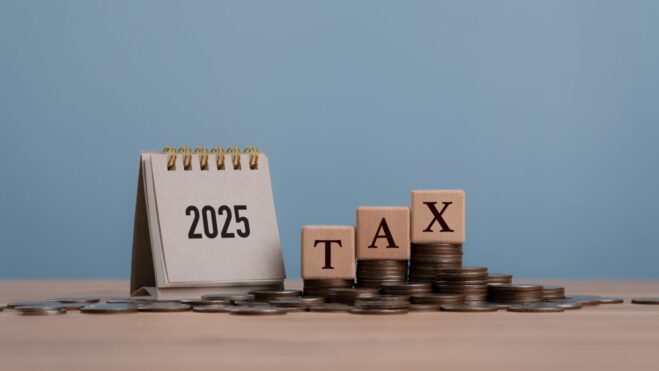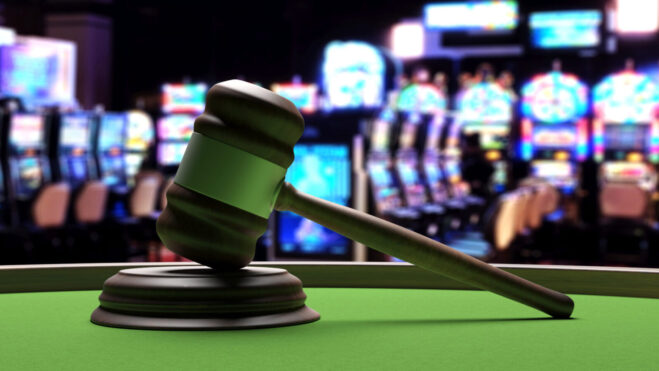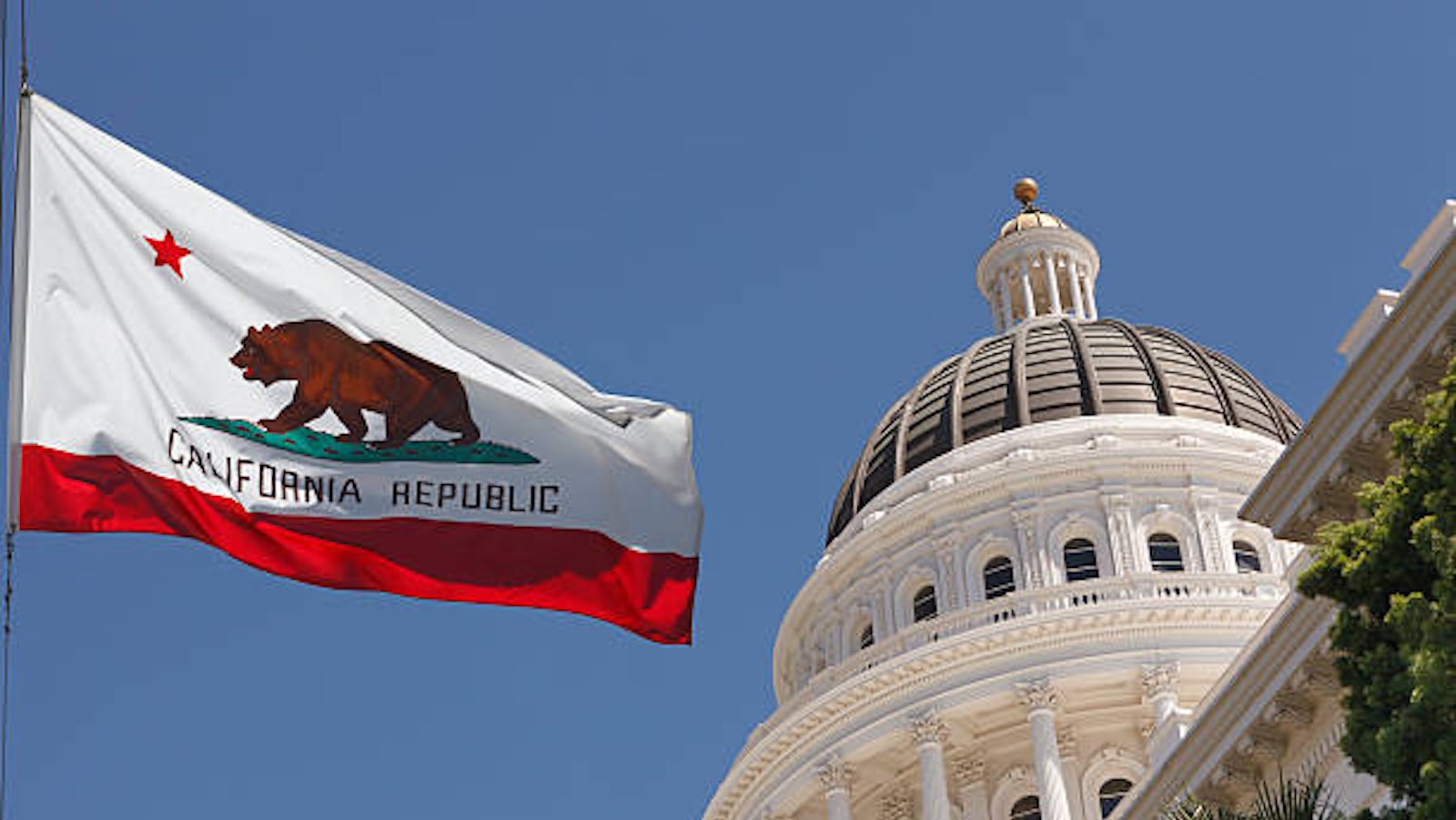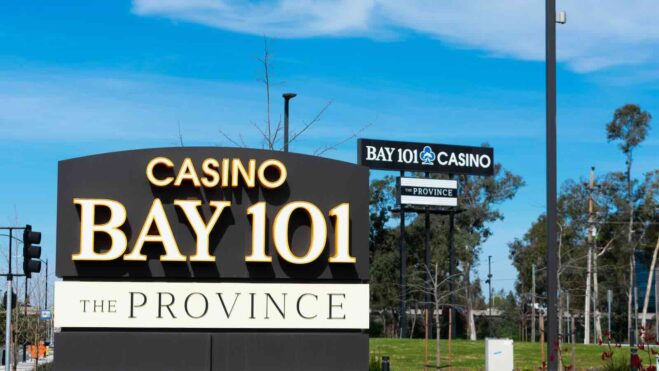Legislative Round-Up: Sweeps Sagas Continue, Sports Betting Outside The Lower 48
Connecticut, Illinois, Oklahoma, and others are making news with bills and bans
5 min
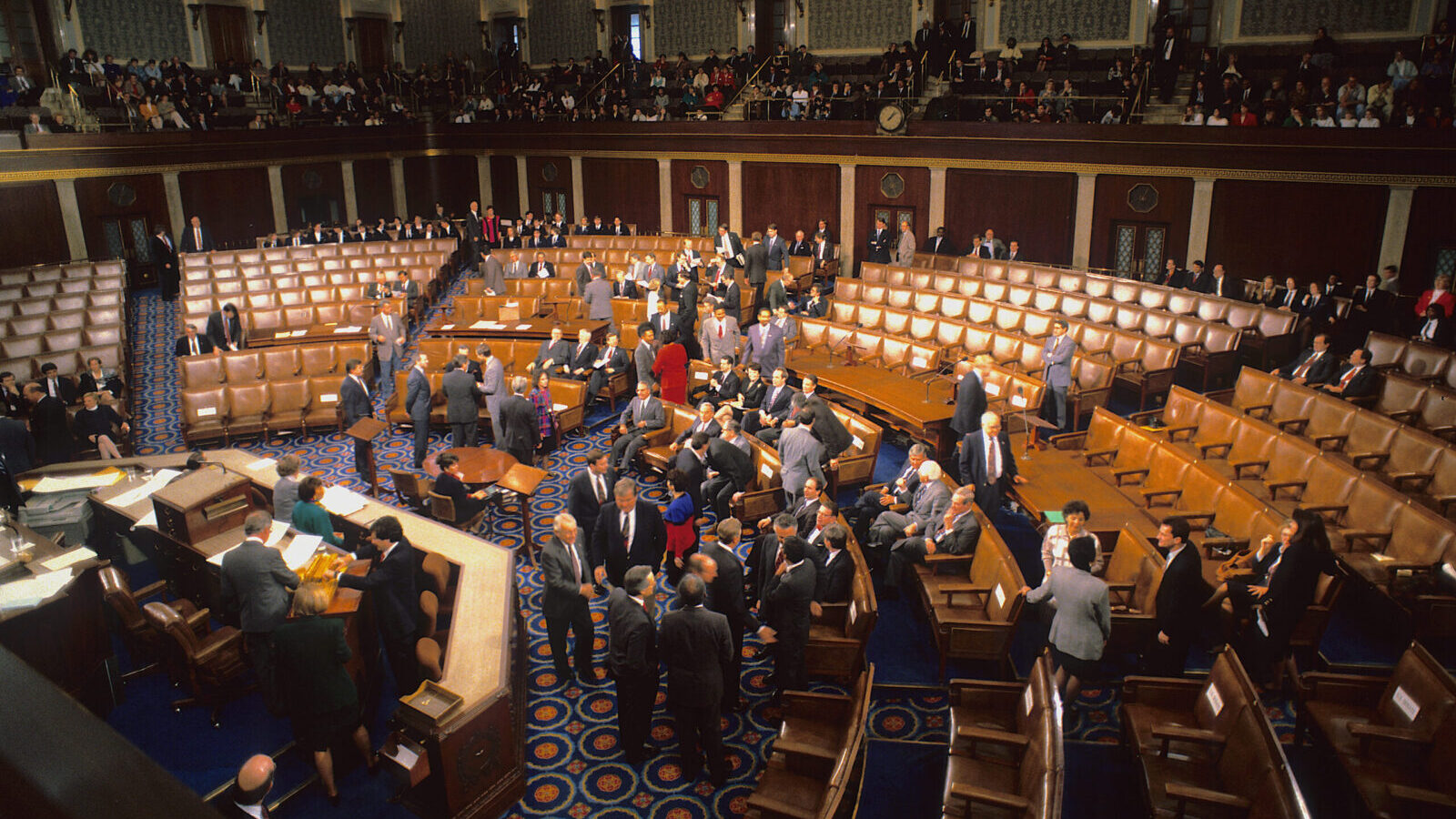
Time is ticking in state legislatures, some places more loudly than others, but urgency is growing for lawmakers to potentially pass definitive laws involving multiple verticals of gaming. Here’s a look at current doings nationwide:
Sweeps ban progresses in Connecticut
The Connecticut General Law Committee unanimously passed SB 1235 by a 22-0 vote Monday. There are multiple components of the bill, one of the most notable being the banning of online sweepstakes casinos. While the bill was brought up in last month’s committee hearing with a slew of other bills, oral testimony during the seven-hour session was limited to the potential ban of lotto couriers.
There were 11 statements submitted regarding the bill — three in favor, three opposed, and five neutral. Department of Consumer Protection Commissioner Bryan Cafferelli offered support of the bill, writing SB 1235 “will benefit the department by improving our regulatory oversight of the gaming industry.”
The most notable opponent against banning sweepstakes casinos was Fair Play, an organization researching sports betting and fantasy sports policy. It warned outlawing sweepstakes sportsbooks would result in “pushing more bettors into unregulated and offshore markets, where consumer protections are nonexistent, and tax revenue is lost.”
Illinois committee gets its first look at sweeps ban …
Before the kerfuffle between Illinois state Sen. Cristina Castro and Illinois Lottery Director Harold Mays during Tuesday’s informational hearing, the Senate’s Gaming, Wagering, and Racing Committee heard testimony on a host of different subjects ranging from banning online sweeps to sports wagering and daily fantasy sports.
There is, however, a slight distinction when it comes to online sweeps in Illinois, as the state also has the largest network of video gaming terminals (VGTs) in the country. SB 1705, filed by Committee Chair and Sen. Bill Cunningham, would amend the state’s criminal code to address two key areas: making video sweepstakes machines that are routinely found in jurisdictions that opted out of offering VGT play illegal as well as banning online sweeps.
The Illinois Gaming Board offered testimony in support of Cunningham’s bill, with Director of Policy Joe Miller bringing the online sweeps ban into sharper focus given the larger attention drawn to the sweepstakes machines at bars and taverns statewide.
“Online sweepstakes games or social casinos offer free play to wager on casino style games and encourage the purchase of virtual coins with real money, effectively turning them into unregulated and untaxed virtual casinos without responsible gaming or other consumer safeguards,” Miller said.
“Both virtual and physical sweepstakes are part of an illicit, unregulated market subject to infiltration by criminal elements. And we’re all aware of the steady flow of news articles and recent court cases revealing the connections between the sweepstakes industry and public corruption and crime.”
Miller said the IGB has encountered difficulties involving the retail sweepstakes machines because the state agency lacks prosecutorial powers — it can merely take possession of a machine for a maximum of 90 days if charges are filed — and the ambiguity of the current criminal code does not give law enforcement confidence in securing convictions for such violations. While not technically a companion bill to Cunningham’s, HB 2879 authored by Rep. Bob Rita addresses illegal gaming in similar fashion.
… and covers DFS and sports betting
The committee also heard the two bills up for consideration regarding DFS play, SB 1224 filed by Sen. Lakesia Collins and SB 2145 via Cunningham. Both bills would put fantasy sports under the IGB’s jurisdiction, but there were clear dividing lines of support between industry players and regulators.
Shane Saum of PrizePicks and Bartlett Cleeland of NetChoice spoke in favor of SB 1224, noting it clarifies that DFS is a skill-based game and presents reasonable tax rates. Miller spoke in opposition, arguing the bill as crafted was too operator-friendly.
Cleeland and Miller flipped sides when discussing SB 2145: Speaking on behalf of the IGB, Miller said the state agency found Cunningham’s bill to present a “more holistic solution” to DFS, while Cleeland was opposed primarily due to the tiered higher tax rates ranging from 20% to 40% based on revenue thresholds. Tim Jensen of RT Fantasy Sports also spoke against Cunningham’s bill, saying the $500,000 license fee exceeds the current annual revenue his company makes in Illinois.
Testimony was also offered for Cunningham’s SB 1349, which would remove the competitive bidding process for the state’s three online-only licenses, remove the limit of three licenses, and lower the license fee from $20 million to $15 million. The IGB had conducted two previous rounds of bidding for online-only licenses, only to have operators withdraw from the application process after being found “preliminary suitable.”
There were concerns of oversaturating the market by removing the limit of licensees, voiced by PENN Entertainment’s Jay Keller since PENN is in the process of a $600 million relocation of its casinos in Aurora and Joliet. Castro had a point of contention whether a mobile sportsbook partner would exit an agreement with casino-based tethers in pursuit of the online-only license, though there was no language limiting multiple license holders in the bill.
In other sports betting news
Alaska legislators will ponder legalizing mobile sports betting after Rep. David Nelson filed HB 145 last Friday and had his bill referred to the Labor and Commerce Committee. Nelson’s bill calls for up to 10 online sportsbooks and a tax rate of 20% on adjusted gross revenue.
The bill also separates sports wagering from fantasy sports and allows for wagering on college and Olympic sporting events. A licensee would be allowed to carry over a monthly negative AGR for up to three years and requires operators to be live in at least three other states to be eligible to conduct betting.
If there are more than 10 applications submitted, the Department of Revenue will award licenses to those “most qualified based on each applicant’s past relevant experience and projected adjusted gross revenue and the projected amount of tax revenue the applicant is expected to generate.” One other interesting provision of Nelson’s bill is that wagering could not begin until at least three licenses are issued.
Meanwhile in Hawaii, the slow march of progress for HB 1308 continued last week as it passed through the Senate’s Commerce and Consumer Protection and Economic Development & Technology committees on second reading, sending it to the state’s Ways and Means Committee.
There are still no defined license fees and tax rates on sports betting revenue, with both stripped via amendments added in the lower chamber last month. The original proposed tax rate was 10%, which would be among the lowest in the nation for states with commercial sports wagering.
Back in the contiguous 48, Oklahoma moved a step closer to legalizing with a narrow passing of SB 585 on Tuesday. Sen. Bill Coleman’s bill received the minimum 25 votes needed for engrossment before heading to the House. SB 585 would allow retail and mobile sports betting through Native American tribes on tribal land and authorizes “one license to conduct event wagering on nontribal land to a professional sports team in this state that is a part of the National Basketball Association.”
The NBA team is the Oklahoma City Thunder. Coleman’s bill would give the Thunder the ability to “sublicense its event wagering license to one tribal-approved operator for mobile and in-person event wagering on nontribal land.” Adding the Thunder as a potential licensee was a starting point for any chance of legalization since Gov. Kevin Stitt was adamant he would veto any bill “exclusively giving a monopoly to the tribes.”
ICYMI
Florida: A bill is introduced to regulate DFS and close a “revolving door” loophole regarding the top regulator of the state’s gaming agency to become a lobbyist.
Kalshi: The prediction market leader generates $198 million in contracts for the NCAA Tournament in just one week.
Underdog: The fantasy company surpassed $1 billion in valuation after its latest round of funding.


